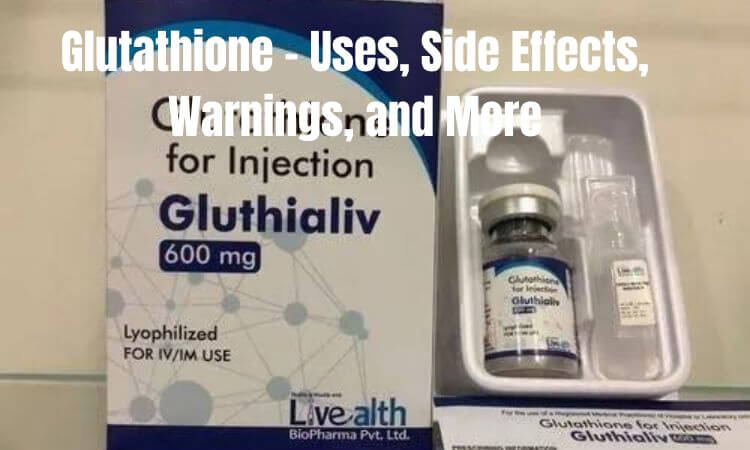Table of Contents
Glutathione – Uses, Side Effects, Warnings, and More
glutathione for skin,glutathione supplement,glutathione side effects,what to avoid when taking glutathione,glutathione injection,what happens when you stop taking glutathione,glutathione liposomal,l glutathione benefits,glutathione for skin,glutathione supplement,glutathione injection,glutathione side effects,what to avoid when taking glutathione,l-glutathione benefits
Overview
Glutathione is a compound derived from the amino acids glycine, cysteine, and glutamic acid. It is made by the liver and is involved in numerous bodily activities.
Glutathione is involved in tissue formation and repair, the production of chemicals and proteins required by the body, and immune system activity.
Glutathione is used to treat aging, alcoholism, liver illness, heart disease, and a variety of other ailments, although there is no clear scientific evidence to back these claims.
DO NOT MISS: Vitamin D – Uses, Side Effects, Warnings, and More
Uses & Effectiveness
Possibly effective for cisplatin-induced nerve damage. Taking glutathione intravenously appears to help avoid nerve damage and other side effects from the cancer medication cisplatin. Only a healthcare provider can administer IV products.
There is some interest in using glutathione for a variety of additional uses, but there isn’t enough trustworthy data to say whether it will be beneficial.
Side Effects
Glutathione is likely safe when taken orally at amounts of up to 500 mg daily for up to two months. There isn’t a lot of information concerning its potential adverse effects.
Glutathione may be safe when breathed. There isn’t a lot of information concerning its potential adverse effects.
When applied to the skin: There is insufficient trustworthy information to determine whether glutathione is safe. When administered to the skin, it may create a rash.
Special Precautions and Warnings
Glutathione is likely safe when taken orally at amounts of up to 500 mg daily for up to two months. There isn’t a lot of information concerning its potential adverse effects.
Glutathione may be safe when breathed. There isn’t a lot of information concerning its potential adverse effects.
When applied to the skin: There is insufficient trustworthy information to determine whether glutathione is safe. When administered to the skin, it may create a rash. Pregnancy and breast-feeding: There isn’t enough trustworthy information to tell if using glutathione while pregnant or breastfeeding is safe. To be on the safe side, avoid using.
Asthmatics should avoid inhaling glutathione. Some asthma symptoms may be exacerbated.
YOU MAY LIKE THIS: Moringa – Uses, Side Effects, Warnings, and More
Interactions
There is currently no information available about GLUTATHIONE Interactions.
Dosing
There is not enough trustworthy information available at this time to determine what a reasonable dose of glutathione might be. It is vital to keep in mind that natural products are not always guaranteed to be safe and that dosages can sometimes be very significant. Before usage, be sure to read all applicable instructions on the product label and speak with an expert in the healthcare field.



